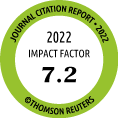|
I Dávila1, A del
Cuvillo2, J Mullol3, I Jáuregui4,
J Bartra5, M Ferrer6, J Montoro7,
J Sastre8, A Valero5 |
|
1Immunoallergy Department,
Salamanca University Welfare Complex, IBSAL, Salamanca,
Spain
2Rhinitis and Asthma Unit, Jerez Hospital,
Cadiz, Spain
3Rhinology and Olfactory Clinical Unit,
Otorhinolaryngology Unit, Hospital Clínic, Barcelona,
Spain
4Allergy Department, Basurto Hospital, Bilbao,
Spain
5Pneumology and Respiratory Allergy
Department, Hospital Clínic (ICT), Barcelona. Biomedical
Research Centre in Respiratory Illnesses Network (CIBERES),
IDIBAPS, Spain
6Allergology Department, Navarra University
Clinic, Pamplona, Spain
7Allergy Unit, Arnau de Vilanova University
Hospital, Faculty of Medicine, Catholic University of
Valencia San Vicente Mártir, Valencia, Spain
8Allergy Department, Jiménez Díaz Foundation,
Madrid, Spain |
|
Abstract |
|
Antihistamine drugs
are one of the
therapeutic classes
most used at world
level, at all ages
and in multiple
situations. Although
in general they have
a good safety
profile, only the
more recent drugs
(second generation
antihistamines) have
been studied
specifically with
regard to the more
important safety
aspects. Given the
variety of
antihistamine drugs,
they cannot all be
considered
equivalent in
application to
various special
clinical situations,
so that the
documented clinical
experience must be
assessed in each
case or, in the
absence of such, the
particular
pharmacological
characteristics of
each molecule for
the purpose of
recommendation in
these special
situations.
In general, there
are few clinical
studies published
for groups of
patients with kidney
or liver failure,
with concomitant
multiple pathologies
(such as cardiac
pathology), in
extremes of age (paediatrics
or geriatrics) and
in natural stages
such as pregnancy or
lactation, but these
are normal
situations and it is
more and more
frequent (among the
elderly) for
antihistamine drugs
to be recommended.
This review sets out
the more relevant
details compiled on
the use of
antihistamines in
these special
situations.
Key words:
Antihistamines H1.
Liver failure.
Kidney failure.
Children. The
elderly. Pregnancy.
Pregnant women.
Lactation.
|
|
|
|
| |
|
|




